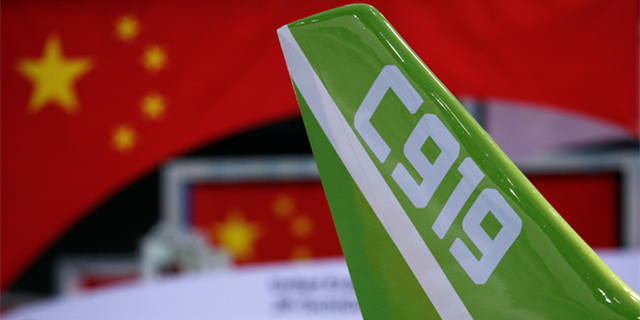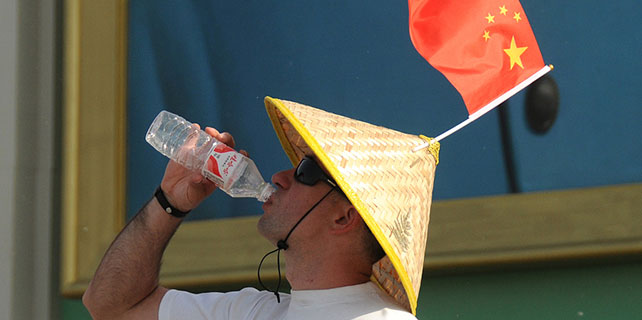Centrist Macron wins French presidential election
|
French President-elect Emmanuel Macron delivers a speech at his campaign headquarters after early results in the second round in the 2017 French presidential election in Paris on Sunday. Lionel Bonaventure / Reuters |
Emmanuel Macron will be the next president of France after decisively defeating Marine Le Pen in Sunday's second-round run-off, according to early polling issued after voting closed at 8 pm local time.
Le Pen phoned Macron to congratulate him, and he was also called by Theresa May, the prime minister of the United Kingdom, and received a message from German Chancellor Angela Merkel.
Less than an hour after the polls closed, Macron told the AFP news agency: "A new page in our long history this evening. I would like it to be one of hope and of confidence rediscovered."
The centrist Macron is predicted to win 65.5 percent of the vote to right-winger Le Pen's 34.45 percent. The result shows that Macron did better than previous opinion polls suggested and that Le Pen's support deteriorated during the last two weeks.
The election prediction is based on a broad sample of votes cast in around 200 locations and such polls tend to be very close to the actual result.
The 39-year old Macron will be the youngest president of France after a remarkable three years in which he has travelled from obscurity to the Elysee Palace. He has promised to reform the French economy, reduce the role of the state and cut unemployment, all of which will require confronting powerful vested interests.
Fears that Le Pen might do better because of some voters deciding to abstain did not materialize and a national and international crisis that could have been precipitated by a Le Pen victory was avoided. Le Pen wanted to pull out of the European Union and the euro, which would have damaged both institutions, perhaps irreparably.
Le Pen later slammed the parties that swung behind Macron in the second round after their own candidates were eliminated in the first round.
"The parties that backed Macron discredited themselves and lost legitimacy," Le Pen said. "The first round had a great decomposition of the French political life and this is the second political rapprochement between the patriots and the globalists."
She then suggested that she would create a new party which she wanted to be the main opposition to the new president, but gave no further details. She stepped down from the leadership of the Front National after the first round in order to focus on her bid.
Winning the presidency is only part one of the battle for Macron. The movement he set up to bolster his candidacy, En Marche (Onwards), has no elected representatives in the French Parliament and the new president will need a majority of members to advance his political program.
The French Fifth republic has been hampered on three occasions when a president of one party was forced to appoint a prime minister from a rival party. These periods of "cohabitation" meant the president and prime minister were often working against each other, rather than together.
Le Pen will tell her supporters at a rally in France that although she has lost, the result represents a victory for the National Front. In 2002, her father gained 17.8 per cent of the vote and she has raised that figure to 34.5. A National Front president in the future has become a real possibility.
The party could transform Le Pen's 11 million votes into increased representation in the French Parliament in the June parliamentary elections but it will always face the obstacle of the two-round election system, in which many voters oppose more extreme candidates in the final round.
The result will be welcomed in Brussels and London. In Brussels, the EU will be relieved that a major threat to it and its currency has been removed for the time being.
In London, some of the more ardent Brexiteers would have rejoiced in the further wounding of the EU, but anyone in government would have realized that it's easier to negotiate with a stable entity, rather than one in crisis.
The reported hack and data dump of communications from Macron's En Marche party does not appear to have had an obvious effect on the election result. The party claimed that it appeared that the hack originated in Russia and that the hackers released fake documents as well as real ones. French media said they would not publish any articles on the hack until after the elections had passed as French police announced that they would investigate the hack.
But with the election out of the way, attention will turn to the leaked documents and communications. If there is anything damaging, Macron could be dangerously weakened before he has had a chance to get a parliamentary majority.
conal@mail.chinadailyuk.com













